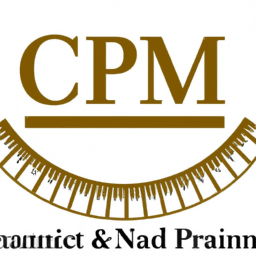Are you ready to take on the role of a project resource manager? Like a conductor leading an orchestra, you hold the baton of success in your hands. Your ability to effectively manage project resources can mean the difference between a harmonious symphony of productivity or a chaotic cacophony of missed deadlines and wasted resources.
In order to achieve a harmonious outcome, you must possess a set of essential skills that will allow you to navigate through the complexities of project resource management.
Communication is your melodic voice, enabling you to effectively convey expectations, goals, and deadlines to your team.
Leadership is your guiding hand, inspiring and motivating your team members to perform at their best.
Negotiation is your delicate dance, finding common ground and resolving conflicts to keep the project on track.
Problem-solving is your sharp intellect, swiftly identifying and resolving challenges that may arise along the way.
Time management is your metronome, ensuring that tasks are completed on schedule.
And financial management is your conductor’s baton, orchestrating the allocation of resources to maximize efficiency and minimize waste.
In this article, we will explore these eight essential skills for effective project resource management. By mastering these skills, you will be equipped to lead your team to success, creating a symphony of achievement in every project you undertake.
So, let’s begin this musical journey and discover the art of effective project resource management together.
Key Takeaways
- Effective project resource management requires a combination of communication, leadership, negotiation, problem-solving, time management, and financial management skills.
- Cross-cultural communication is important in a globalized workforce and should be considered when managing project resources.
- Leadership skills are crucial for guiding and motivating team members towards project success.
- Financial management, including budgeting and forecasting, is essential for project completion and should be regularly reviewed and updated to ensure effective resource allocation.
Communication
Effective project resource management requires strong communication skills. This includes the ability to ensure that team members are able to collaborate efficiently and resolve any issues that may arise. Active listening is an essential aspect of effective communication. It allows project managers to understand the needs and concerns of team members. By actively listening, project managers can address any challenges or obstacles promptly, ensuring that the project stays on track.
Additionally, cross-cultural communication is crucial in today’s globalized workforce. Project managers must be able to adapt their communication style to accommodate different cultural norms and expectations. This fosters a collaborative and inclusive environment. By prioritizing communication and actively listening to team members, project managers can effectively manage resources and ensure successful project outcomes.
Transitioning into the subsequent section about leadership, it is also important for project managers to possess strong leadership skills. These skills will guide and motivate their team towards project success.
Leadership
Leadership plays a crucial role in guiding and inspiring team members towards project success. Effective leadership development is essential for project managers to cultivate the necessary skills to motivate their teams and drive them towards achieving project goals. Leaders must possess strong communication and interpersonal skills, as well as the ability to make informed decisions and provide clear direction.
| Skills | Description |
|---|---|
| Communication | Good leaders are effective communicators, conveying information clearly and concisely to their team members. They listen actively, provide feedback, and ensure that everyone is on the same page. |
| Emotional Intelligence | Leaders with high emotional intelligence can understand and manage their own emotions, as well as empathize with and motivate their team members. This skill helps in creating a positive work environment and fostering strong relationships within the team. |
| Decision Making | Leaders must make informed and timely decisions for the project. They consider all relevant factors, weigh the pros and cons, and choose the best course of action. Their ability to make tough decisions inspires confidence and trust among team members. |
Leadership is crucial for effective project resource management. It not only helps in guiding the team towards success but also plays a vital role in maintaining team motivation and cohesion. With strong leadership skills, project managers can foster a positive work environment, inspire their team members, and drive them towards achieving project objectives. This sets the stage for the next section on negotiation, where effective leadership can greatly contribute to successful outcomes.
Negotiation
When it comes to negotiation, you need to understand the importance of effective communication and being able to find common ground with others in order to achieve successful outcomes.
Conflict resolution is a key aspect of negotiation, as it involves addressing and managing any disagreements or issues that may arise during the project. By actively listening to all parties involved and seeking to understand their perspectives, you can work towards finding mutually beneficial solutions.
Additionally, stakeholder engagement is crucial in negotiation, as it involves identifying and involving all relevant stakeholders in the negotiation process. This ensures that all voices are heard and considered, increasing the chances of reaching a successful agreement.
Effective negotiation skills are essential for project resource management as they enable you to navigate through conflicts and engage stakeholders effectively.
Transitioning into the subsequent section about problem-solving, it’s important to note that negotiation is just one aspect of the larger skill set required for effective project resource management.
Problem-solving
Problem-solving is a crucial element of successful project resource management, as it allows teams to overcome obstacles and find innovative solutions. It requires critical thinking and effective decision-making to identify and address the root causes of problems. By utilizing problem-solving skills, project managers can ensure that resources are allocated efficiently and effectively to achieve project goals.
To enhance problem-solving abilities, project managers can utilize various techniques such as brainstorming, root cause analysis, and SWOT analysis. These techniques help in identifying potential issues, analyzing their impact, and devising appropriate solutions. Additionally, effective problem-solving involves collaboration and communication within the team to gather diverse perspectives and ideas.
By mastering problem-solving skills, project managers can navigate challenges and make informed decisions that optimize resource allocation. In the next section on time management, we will explore how effective resource management contributes to project success.
Time management
To effectively manage your project, you need to prioritize and allocate your time wisely. Time management is a crucial skill that allows you to stay organized and meet project deadlines.
One essential aspect of time management is time tracking. By monitoring how much time you spend on different tasks, you can identify areas where you may be wasting time or need to allocate more resources. This helps you make necessary adjustments and ensure that you are using your time efficiently.
Additionally, prioritization techniques are crucial for effective time management. You must identify the most critical tasks and allocate your time accordingly. This involves setting clear goals, breaking them down into smaller tasks, and scheduling them in order of importance.
By mastering time management skills like time tracking and prioritization techniques, you can optimize your project resources and enhance overall productivity.
As you move into the subsequent section about financial management, you must also consider the importance of budget allocation and resource optimization.
Financial management
Make sure you prioritize and allocate your financial resources wisely in order to effectively manage your project.
Budgeting is a crucial aspect of financial management, as it allows you to plan and allocate funds for different project activities. By creating a detailed budget, you can identify potential cost overruns and take necessary measures to mitigate them.
Additionally, forecasting plays a vital role in financial management as it helps you anticipate future financial needs and make informed decisions. By accurately forecasting your project’s financial requirements, you can ensure that you have adequate funds available at each stage of the project.
To effectively manage your project’s financial resources, consider the following:
-
Regularly review and update your budget to reflect any changes in project scope or requirements.
-
Monitor and track expenses to identify any deviations from the budget.
-
Implement measures to control costs and prevent financial risks.
-
Seek input from financial experts or consultants to improve your financial management skills.
Remember, effective financial management is essential for the successful completion of your project.
Frequently Asked Questions
How can effective communication improve project resource management?
Improving communication in project resource management can significantly enhance project efficiency. Did you know that 86% of project failures are due to poor communication?
Effective communication allows team members to understand project goals, roles, and expectations, leading to better coordination and resource allocation.
Through clear and timely communication, potential issues can be identified and resolved promptly, preventing any delays or conflicts.
Ultimately, strong communication skills contribute to smoother project execution and successful outcomes.
What are some common leadership challenges faced in project resource management?
When it comes to project resource management, common leadership challenges often include difficulties in team collaboration and stakeholder engagement.
Effective project resource management requires leaders to facilitate effective communication and collaboration among team members, ensuring that everyone is working towards a common goal.
Additionally, leaders must engage stakeholders throughout the project, keeping them informed and involved in decision-making processes.
Overcoming these challenges is crucial for successful project resource management and ultimately achieving project objectives.
How can negotiation skills be utilized to resolve conflicts in project resource management?
To effectively resolve conflicts in project resource management, you can utilize negotiation techniques and conflict resolution strategies. By employing effective communication and active listening skills, you can understand the concerns and interests of all parties involved.
Collaborative problem-solving, compromise, and finding win-win solutions are essential elements of negotiation. Additionally, maintaining a calm and respectful demeanor throughout the process will help create a positive and productive environment for conflict resolution.
What are some problem-solving techniques that can be applied to address resource constraints?
To address resource constraints, you can apply several problem-solving techniques. One effective technique is to prioritize tasks and allocate resources accordingly.
Another approach is to explore alternative solutions, such as outsourcing or collaborating with other teams.
Additionally, you can optimize resource utilization by identifying inefficiencies and finding ways to streamline processes.
By employing these problem-solving techniques, you can effectively manage resource constraints and ensure successful project outcomes.
How does effective time management contribute to successful project resource management?
Effective time management is essential for successful project resource management. Prioritization, a concept you may be familiar with, is important in managing your time effectively. By identifying and focusing on the most important tasks, you can make the most efficient use of your limited resources.
Additionally, delegation plays a crucial role. By entrusting certain tasks to others, you free up your own time to focus on higher-level responsibilities, increasing overall productivity and ensuring that resources are utilized optimally.
Conclusion
In conclusion, effective project resource management requires a combination of essential skills. From strong communication and leadership abilities to effective negotiation and problem-solving skills, each skill plays a vital role in achieving project success.
Additionally, mastering time and financial management ensures efficient project execution. By honing these skills, project managers can create a rhythm and flow in their work, resulting in a professional, organized, and knowledgeable approach.
So, embrace these skills and watch your projects flourish with success.























